#logistics data analytics
Explore tagged Tumblr posts
Text
0 notes
Text

🚀 Dive into the Future of Supply Chain & Logistics! Discover how advanced supply chain analytics is reshaping the way we manage logistics and supply chains. From predicting trends to optimizing routes, these smart tools are not just about crunching numbers – they're reshaping how we think about and manage the flow of goods. 📦
2 notes
·
View notes
Text
Transforming Vessel Efficiency: Leveraging Data-Driven Insights for a Sustainable Future
Introduction
Optimizing vessel efficiency has become not just a competitive advantage but a necessity. Shipping companies are under increasing pressure to reduce operational costs, comply with stringent environmental regulations, and minimize their carbon footprint. As global trade continues to expand, so does the need for smarter, data-driven solutions. This is where leveraging data-driven insights comes into play, transforming vessel operations and driving the future of maritime efficiency.
The Increasing Importance of Vessel Efficiency
Vessel efficiency is essential for several critical reasons. First and foremost, cost reduction is a driving force. Fuel costs represent one of the largest operational expenses for shipping companies. In fact, optimizing vessel efficiency can lead to fuel savings of up to 15%, resulting in substantial reductions in overall operating costs. One way this is achieved is through smart propulsion systems that adjust fuel consumption in real time based on operational conditions, ensuring that vessels operate at peak efficiency.

But it’s not just about fuel savings. With stringent regulations set by the International Maritime Organization (IMO) aimed at reducing greenhouse gas emissions, operational efficiency has become critical for regulatory compliance. The IMO has set ambitious targets: a 30% reduction in emissions by 2030 and an 80%reduction by 2040. Meeting these targets will require shipping companies to focus on optimizing their vessels' operational efficiency.
On the environmental front, the shipping industry is responsible for approximately 3% of global CO2emissions. Environmental responsibility is becoming increasingly important, and improving vessel efficiency helps to lower emissions, making a significant contribution to the global effort to combat climate change.
Importance of Vessel Efficiency in Modern Shipping
As operating costs rise due to factors like high interest rates, increasing shipbuilding costs, and the extended lifespan of older vessels, the importance of vessel efficiency has become more evident than ever. However, vessel efficiency goes beyond just fuel consumption—it is a multifaceted issue that requires a holistic approach to optimize.
Vessel efficiency can be broken down into three key categories:
1. Structural Efficiency: This includes innovations like new vessel designs, retrofits, and advanced propulsion systems.
2. Maintenance Efficiency: Regular hull cleaning, engine maintenance, and proactive maintenance scheduling can significantly reduce fuel consumption and downtime.
3. Operational Efficiency: Minimizing idle time, optimizing fleet size, and adopting best practices can drastically improve operational performance.
By addressing each of these categories, shipping companies can unlock vast improvements in vessel efficiency, ultimately leading to reduced costs, improved sustainability, and a stronger competitive edge.
The Role of Data in Enhancing Efficiency
Data is at the core of optimizing vessel efficiency. With the advent of real-time monitoring and advanced analytics, shipping companies can continuously track and analyze vessel performance. Sensors on board gather data on key metrics like speed, fuel consumption, engine performance, and weather conditions. This data can be analyzed in real time to make informed decisions that improve fuel efficiency, reduce costs, and ensure regulatory compliance.
One of the most impactful ways data enhances efficiency is through dynamic route optimization. By integrating weather data, ocean currents, and other environmental factors, shipping companies can plan more efficient routes, reducing fuel consumption and travel time. This ensures vessels are always operating at their best, no matter the external conditions.
Furthermore, data enables predictive maintenance, which is crucial for avoiding costly breakdowns. By analyzing sensor data, operators can identify potential issues before they become critical, saving time and money on repairs and preventing unexpected downtime.
The Power of Data in Steering Operational Efficiency
Data-driven insights not only help companies monitor vessel performance but also provide actionable recommendations to improve efficiency. By examining historical data, operators can identify patterns and trends that reveal areas for operational improvement. For example, fuel consumption predictions become more accurate by analyzing past performance data and factoring in vessel designs and engine specifications. Routine performance evaluations through reports, KPIs, and interactive dashboards ensure that operational efficiency remains a top priority.
Additionally, the integration of machine learning algorithms allows shipping companies to automate data analysis, detect inefficiencies, and make proactive adjustments. This creates a culture of continuous refinement, ensuring vessels are always operating at peak performance.
How Can Data-Driven Insights Improve Vessel Efficiency?
There are several powerful ways data-driven insights can optimize vessel efficiency, including:
1. Fuel Efficiency Optimization
Real-Time Monitoring: Implementing IoT sensors enables operators to track fuel consumption in real time, adjusting parameters to reduce waste and optimize fuel use.
Predictive Analytics: By analyzing historical data, operators can predict future fuel needs and adjust operations accordingly, preventing overconsumption.
2. Route Optimization
Weather and Ocean Current Data: By integrating external data such as weather forecasts and ocean currents, shipping companies can optimize routes to minimize fuel consumption and improve travel times.
Dynamic Routing Algorithms: These algorithms can adapt routes in real time based on changing conditions, ensuring vessels always follow the most efficient path.
3. Performance Benchmarking
KPIs: Establishing KPIs based on past performance helps operators measure current operations against benchmarks, identifying areas for improvement.
Comparative Analysis: By analyzing performance data across similar vessels, shipping companies can adopt best practices and enhance operational efficiency.
4. Maintenance Management
Predictive Maintenance: By forecasting maintenance needs based on real-time data, companies can schedule repairs proactively, reducing unplanned downtime.
Condition Monitoring: Continuous assessment of critical components ensures that repairs are made before issues escalate, improving vessel reliability.
5. Crew Performance Enhancement
Behavioral Insights: Analyzing crew behavior can reveal opportunities to optimize vessel operations, such as improving speed management to conserve fuel.
Training Needs Assessment: By identifying skill gaps, operators can target training programs that improve operational efficiency and safety.
6. Cargo Handling Efficiency
Load Optimization: Data analytics can be used to optimize cargo configurations, ensuring efficient use of space while reducing weight distribution issues.
Turnaround Time Reduction: By analyzing port call data, operators can streamline loading and unloading processes, reducing turnaround times at ports and improving fleet utilization.
By leveraging these insights, shipping companies can significantly reduce fuel consumption, improve operational performance, and enhance sustainability.
What Are the Challenges of Implementing Data-Driven Insights in Vessel Operations?
While the benefits of implementing data-driven insights are clear, there are several challenges that shipping companies must overcome:
Data Integration: Vessels generate data from multiple sources, including navigation systems, engines, and sensors. Integrating this data into a cohesive framework is complex, particularly when different systems and equipment use non-standardized formats.
Data Quality and Accuracy: Inconsistent or inaccurate data can lead to poor decision-making, making it essential to ensure data integrity and address issues like sensor malfuzctions.
Technology Adoption: Crew members and management may resist adopting new technologies due to unfamiliarity or fear of job displacement. Overcoming this resistance requires effective training and change management strategies.
Cybersecurity Risks: The increasing reliance on digital systems exposes shipping companies to cyber threats. Protecting sensitive data and ensuring compliance with cybersecurity regulations is critical.
Cost Implications: The upfront costs of implementing data-driven technologies, such as IoT sensors, telematics systems, and analytics platforms, can be significant. However, these investments typically pay off in the form of improved efficiency and cost savings.
Data Overload: The sheer volume of data generated can overwhelm operators, making it difficult to extract actionable insights. Prioritizing the most relevant data and implementing effective analytics tools can help mitigate this challenge.
What Technologies Are Essential for Collecting Data on Vessel Efficiency?
To collect and analyze data effectively, shipping companies rely on several key technologies:
IoT Sensors: These sensors provide real-time monitoring of critical metrics like fuel consumption, engine performance, and weather conditions.
Telematics Systems: By combining GPS, sensors, and software, telematics systems offer a comprehensive view of fleet operations and predict maintenance needs.
Cloud Computing: Cloud platforms enable the storage and processing of vast amounts of data, allowing operators to analyze and act on it in real time.
Big Data Analytics: Big data tools help analyze large datasets, identifying patterns and trends that optimize performance.
Advanced Communication Systems: Modern telemetry systems ensure secure, real-time transmission of data from vessels to shore-based operations, enhancing decision-making capabilities.
Conclusion: Charting a Course for the Future with the Power of Data-Driven Efficiency in Maritime Operations
The future of vessel efficiency lies in the power of data. By leveraging real-time monitoring, predictive analytics, and machine learning, shipping companies can unlock significant operational improvements, reduce costs, and meet environmental goals. As the maritime industry continues to evolve, adopting data-driven insights will be the key to staying competitive, sustainable, and profitable in an increasingly complex landscape.
For companies seeking to harness the power of data for vessel efficiency, the right technology solutions can make all the difference. From IoT sensors to advanced analytics platforms, investing in these technologies will enable shipping companies to not only enhance their operations but also contribute to a greener, more efficient future for the maritime industry.
For shipping companies aiming to unlock vessel efficiency and stay competitive, Envision Enterprise Solutions offers cutting-edge technologies like IoT sensors, real-time monitoring, predictive analytics, and machine learning. These solutions help optimize operations, reduce costs, and ensure compliance with environmental standards.
Explore how Envision can help your business enhance vessel performance and sustainability by visiting our website and discovering the full potential of data-driven insights.
#ai powered solutions#envision#ctos#operating systems#container#terminals#logistics#digitaltransformation#data analytics#iotsolutions#maritime
0 notes
Text
Predictive Analytics: Argus Logistics’ Edge in Freight Rate Forecasting
Argus Logistics is leading the way in leveraging predictive analytics to transform freight rate forecasting and supply chain strategies. By combining historical and real-time data, Argus creates accurate, agile predictions that help businesses optimize routing, manage inventory, and secure capacity at the right time and price.
Unlike traditional forecasting methods that rely on averages, Argus uses AI-driven models to account for complex market variables—like weather, fuel prices, and global events—delivering smarter, faster decisions.
Data privacy remains a priority. Argus ensures secure, anonymous data sharing and gives clients full control over their information.
Discover how Argus is reshaping the future of logistics: 🔗https://arguslogistics.com/inbound-logistics-thought-leader/
#Predictive Analytics#Freight Rate Forecasting#Real-Time Data#Machine Learning in Logistics#Freight Market Trends
0 notes
Text
Industry 4.0: Powering the Next Industrial Revolution with Intelligence, Connectivity, and Automation
The world is undergoing a radical transformation. As we move deeper into the 21st century, the fusion of digital, physical, and biological systems is reshaping how we manufacture, operate, and innovate. This revolution has a name: Industry 4.0—the fourth industrial revolution. It represents a new era where smart technology, real-time data, automation, and interconnected networks converge to…
#5G Connectivity#Additive Manufacturing#advanced robotics#Artificial intelligence#Automation#Big Data Analytics#Blockchain#Cloud Computing#connected industry#Cyber-physical systems#data-driven operations#Digital Transformation#Digital twin#Edge computing#fourth industrial revolution#IIoT#Industrial Networking#Industry 4.0#intelligent systems#manufacturing innovation#next-gen industry#Predictive maintenance#Real-time analytics#Robotics#smart factory#Smart Grid#Smart logistics#Smart manufacturing#SolveForce#Supply Chain Visibility
0 notes
Text
If you’ve ever tried to ship goods overseas, you know how many moving parts are involved. Between customs paperwork, tracking multiple carriers, and trying to meet delivery deadlines, it can get overwhelming fast. That’s where freight forwarding comes in—it takes the pressure off and helps everything run smoother. For businesses working with Y5 Logistics Inc., it gets even easier thanks to smart tools that keep things organized behind the scenes—like transport management software in Los Angeles, California.
0 notes
Text
Best Diploma Courses for a Future-Proof Career in 2025
The job market is constantly evolving, and staying ahead requires the right skills and certifications. If you're looking for the best diploma courses to secure your future, you're already on the right path!
With so many career options, choosing the right course can feel overwhelming. But don’t worry—we've curated a list of high-demand free online courses that can give you a competitive edge. These diploma programs cover diverse industries, from healthcare to data analytics and logistics to HR management.

Which Diploma Course is Best for the Future?
Whether you're fresh out of school or considering a career switch, selecting the right diploma course is a crucial step. You might be asking yourself:
What if the course isn’t the right fit?
What if I invest my time and regret it later?
That’s why we’ve compiled a list of free-to-learn online diploma courses so you can explore your options without financial risk. Let’s dive in!
Diploma Certificate in Environment Health and Safety Management
Workplace safety and environmental management are crucial for businesses worldwide. A Diploma Certificate in Environment Health and Safety Management equips you with the skills to identify hazards and implement safety protocols across industries.
Career Opportunities:
Industrial Hygienist
Environmental Health & Safety Officer
Food Safety Inspector
Toxicologist
Soil Analyst
Healthcare Management Diploma
The healthcare industry isn’t just about doctors and nurses—it requires skilled administrators and managers to ensure efficient operations. A Healthcare Management Diploma can open doors to rewarding roles in healthcare facilities, pharmaceuticals, and insurance firms.
Career Opportunities:
Healthcare Administrator
Clinic Manager
Health Information Manager
Pharmaceutical Administrator
Healthcare HR Manager
Diploma in International Human Resource Management
HR professionals play a critical role in building successful businesses. A Diploma in International Human Resource Management provides insights into global HR practices, talent acquisition, and organizational behavior.
Career Opportunities:
Recruitment Coordinator
Payroll Specialist
HR Analyst
Training Coordinator
Diploma in SQL: Beginner to Advanced Levels
SQL is the backbone of data management. A Diploma in SQL will teach you how to manage, retrieve, and manipulate data—essential skills for roles in IT, cybersecurity, and data science.
Career Opportunities:
SQL Developer
Data Engineer
Business Intelligence Analyst
QA Tester
Diploma in Data Analytics
Data drives modern business decisions. A Diploma in Data Analytics provides hands-on experience with data visualization, predictive analytics, and statistical modeling.
Career Opportunities:
Data Scientist
Business Analyst
Marketing Analytics Manager
Financial Analyst
Diploma Course in Transportation and Logistics Management
Efficient supply chains keep the world moving. A Diploma Course in Transportation and Logistics Management teaches supply chain dynamics, international shipping, and warehouse management.
Career Opportunities:
Logistics Manager
Inventory Manager
International Logistics Coordinator
Transportation Planner
Diploma in Supply Chain Management
For those looking to take logistics expertise to the next level, a Diploma in Supply Chain Management covers procurement strategies, ERP systems, and inventory optimization.
Career Opportunities:
Supply Chain Manager
Operations Manager
Materials Manager
Procurement Specialist
Why These Courses Matter for Nigeria’s Job Market
Nigeria’s job market is rapidly evolving, with increasing demand for professionals in healthcare, logistics, and technology. These diploma programs can give Nigerian students and professionals a competitive advantage in the global workforce.
Key Benefits:
Growing industries such as healthcare, tech, and logistics require skilled professionals.
Many multinational companies in Nigeria prefer candidates with specialized certifications.
Online learning makes it accessible for students and working professionals.
By enrolling in these free online courses, you can gain globally recognized certifications from platforms like UniAthena, enhancing your career prospects.
Conclusion
These best diploma courses equip you with essential skills to advance your career—all without financial barriers. Whether you’re passionate about healthcare, human resources, data analytics, or supply chain management, these programs offer a flexible and accessible way to gain industry-relevant expertise.
With globally recognized certifications, you can enhance your resume, boost your employability, and stay competitive in today’s job market. Plus, since these free online courses are self-paced, you can learn at your convenience. Take the first step toward a brighter future—explore these diploma courses, acquire valuable skills, and unlock exciting career opportunities today!
Bonus Points:
Try these free-to-learn diplomas before committing to a full degree.
Gain extra credentials to boost your resume as a fresher.
Most courses can be completed within two weeks!
Open to learners from all backgrounds, no prior experience required.
So, what are you waiting for? Pick a diploma course that aligns with your goals and take the first step toward a successful career today!
#Best Diploma Courses#Free Online Courses#Diploma Certificate in Environment Health and Safety Management#Healthcare Management Diploma#Diploma in International Human Resource Management#Diploma in SQL#Diploma in Data Analytics#Diploma Course in Transportation and Logistics Management#Diploma in Supply Chain Management#UniAthena#Free to Learn
1 note
·
View note
Text
The Future Of Military Logistics Is Predictive
The Future Of MILITARY LOGISTICS IS PREDICTIVE - A recent commander of Army Materiel Command says the war in Ukraine illuminates the path to data-driven sustainment

View On WordPress
0 notes
Text
Peran AI dalam Mempercepat Manajemen Rantai Pasokan
Manajemen rantai pasokan adalah tulang punggung operasional bisnis, yang mencakup pengelolaan aliran barang, informasi, dan keuangan dari pemasok ke konsumen. Dalam era globalisasi dan digitalisasi, tantangan dalam rantai pasokan semakin kompleks. Di sinilah kecerdasan buatan (AI) memainkan peran penting. AI tidak hanya memberikan efisiensi tetapi juga mempercepat berbagai aspek manajemen rantai…
#AI challenges#AI in logistics#AI in supply chain#artificial intelligence#blockchain integration#cost reduction#customer satisfaction#future of AI#inventory optimization#IoT in supply chain#logistics efficiency#predictive analytics#real-time data#supply chain automation#supply chain innovation#supply chain management#supply chain transparency#supply chain trends#sustainable supply chain#warehouse management
0 notes
Text
From Data to Decisions: Empowering Teams with Databricks AI/BI
🚀 Unlock the Power of Data with Databricks AI/BI! 🚀 Imagine a world where your entire team can access data insights in real-time, without needing to be data experts. Databricks AI/BI is making this possible with powerful features like conversational AI
In today’s business world, data is abundant—coming from sources like customer interactions, sales metrics, and supply chain information. Yet many organizations still struggle to transform this data into actionable insights. Teams often face siloed systems, complex analytics processes, and delays that hinder timely, data-driven decisions. Databricks AI/BI was designed with these challenges in…
#AI/BI#artificial intelligence#BI tools#Business Intelligence#Conversational AI#Data Analytics#data democratization#Data Governance#Data Insights#Data Integration#Data Visualization#data-driven decisions#Databricks#finance#Genie AI assistant#healthcare#logistics#low-code dashboards#predictive analytics#self-service analytics
0 notes
Text
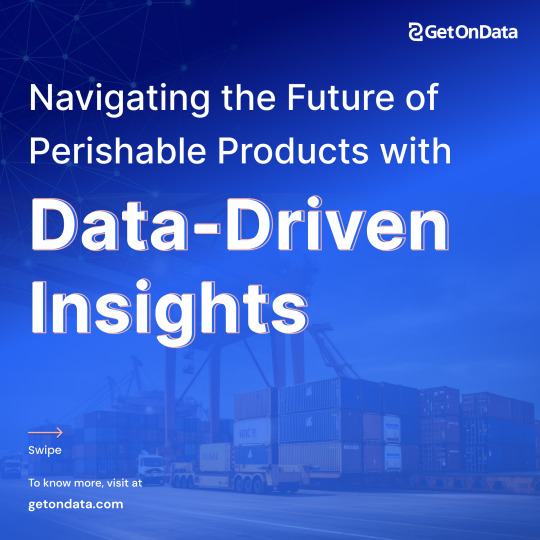
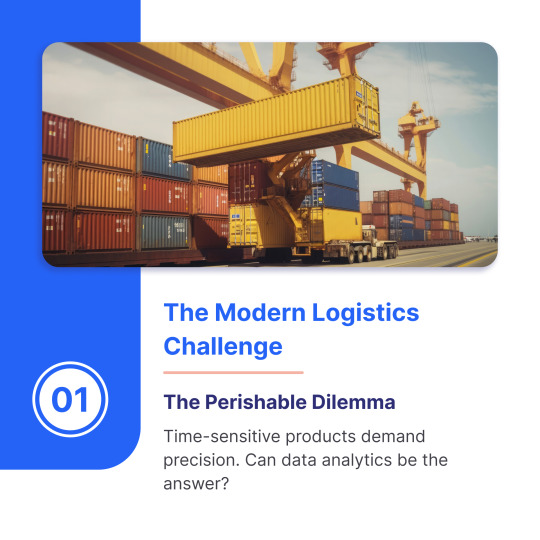
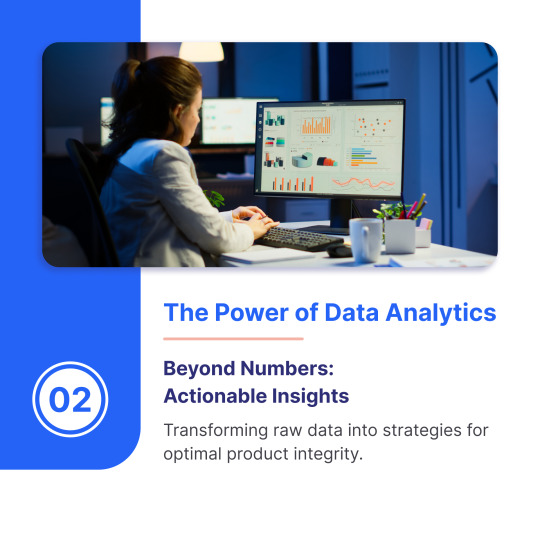
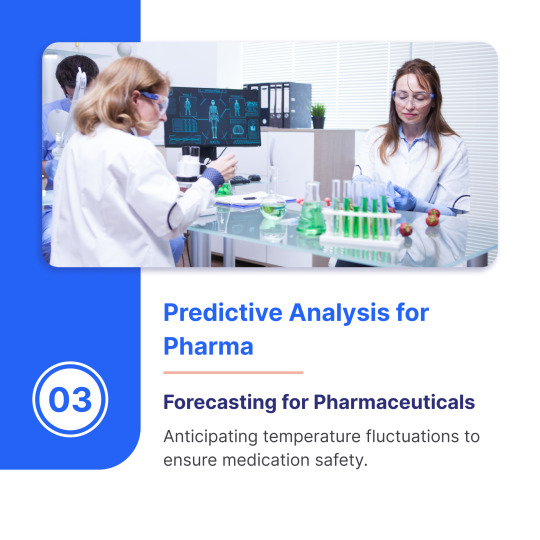
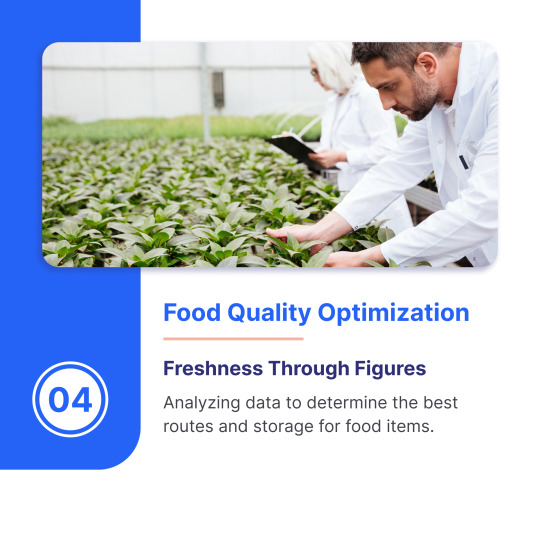
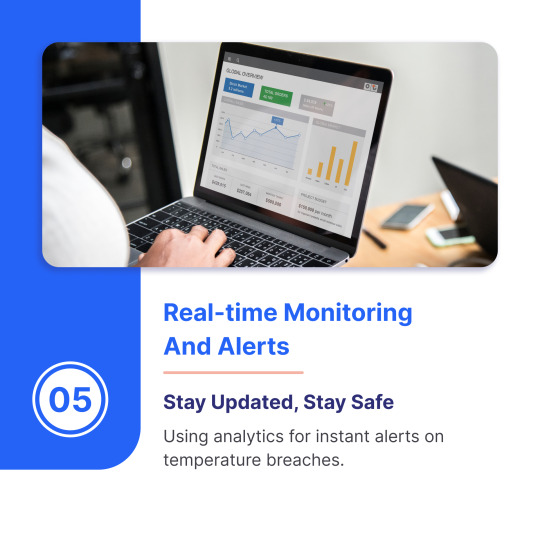
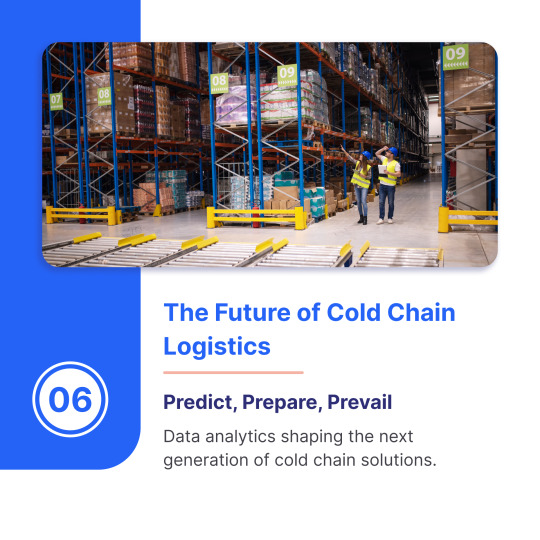
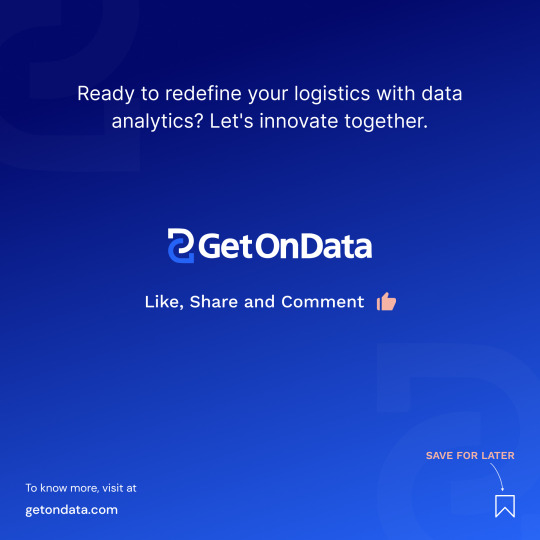
Dive into the future of perishable products with us! Discover how data-driven insights are shaping the way we handle, store, and consume our fresh goods. Let's embrace a smarter, sustainable future together.
#preishable#product#data driven#logistics#data analytics#data#scm#supplychain#demand forecasting#inventorymanagement#food#food security#sustainability#getondata
2 notes
·
View notes
Text
Top Trucking Industry Trends of 2024: Adapting to a New Era of Innovation and Challenges
The trucking industry is experiencing significant changes, driven by advancements in technology, economic pressures, and environmental concerns. One of the biggest trends is the adoption of electric trucks. Many companies are feeling the push to reduce carbon emissions and meet sustainability goals. Electric trucks, while expensive upfront, are being seen as long-term investments due to lower…

View On WordPress
#AI in trucking#alternative fuels#autonomous trucks#business#cash flow management#driver retention#driver shortage#Electric Trucks#electric vehicles#fleet management#fleet safety#Freight#freight industry#freight management#Freight Revenue Consultants#fuel optimization#gig economy drivers#logistics#logistics technology#rising fuel costs#small carriers#smart trucks#sustainability in trucking#Transportation#Trucking#trucking analytics#trucking automation#trucking cybersecurity#trucking data#trucking industry
1 note
·
View note
Text
Boost Your Shipping Efficiency with Transworld Group Singapore
Struggling with real-time tracking and visibility issues? Transworld Group Singapore offers the solutions to keep you ahead of the curve:
Advanced Tracking Technologies: We use cutting-edge GPS and RFID tech to deliver precise location data and status updates, ensuring full visibility of your shipments.
Integrated Software Solutions: Our all-in-one logistics platforms provide seamless shipment tracking and inventory management, consolidating crucial data for easy access.
IoT Solutions: With IoT devices, we monitor shipment conditions in real-time, protecting your cargo and preventing potential issues before they arise.
Streamlined Communication: Our robust communication channels ensure real-time alerts and updates, keeping all stakeholders informed and ready to act swiftly.
Data-Driven Insights: Leverage our advanced data analytics to forecast disruptions and optimize your shipping operations based on historical performance.

Experience the future of logistics with Transworld Group Singapore. Contact us now to see how our innovative solutions can enhance your shipping and logistics efficiency.
1 note
·
View note
Text
Geopolitics and shipping
Geopolitics is having a great effect on ocean shipping today. Trade is where wars are fought now. It may have been true in the past as well, but the means and methods are changing rapidly. I listened to this podcast featuring Jon Thompson, co-founder and commercial director of Ambrey, an international risk management company. He made several interesting points. What’s become possible only…
#AI in Maritime Risk Assessment#Commercial Shipping Hazards#Digital Infrastructure in Shipping#Environmental and Conflict Zones in Shipping#Global Trade Risks#Logistics#Maritime Data Analytics#Maritime Risk Management#ocean shipping#Ocean Shipping Trends 2024#Piracy and Shipping Security#Shipping and Geopolitical Tensions#Shipping Contracts and Insurance#supply chains
0 notes
Text
HOW INVENTORY AND LOGISTICS ANALYTICS DRIVE PERFORMANCE OPTIMIZATION?

Have you ever felt like you’re always on the edge while managing logistics and inventory? While you want to avoid disappointing customers with stockouts, but you don’t want to overstock and let it eat into profits either. What if there was a way to find a sweet spot? That is where Data Analytics comes in handy, equipped with the ability to transform raw data into actionable insights, guiding strategic decisions with precision. With the vast amount of data sets generated at every stage of the supply chain journey – from procurement to distribution – businesses can gain a comprehensive view of their operations. As a result, optimal usage of data for inventory and logistics analytics can help you drive performance optimization. We suggest you keep reading to learn more about how Inventory and Logistics analytics work.
#cymetrix software#data analytics#logistics#inventory optimization#inventory management#inventory#logistic analytics#performance#performance optimization
0 notes
Text
Major Political Shift in Indian General Election, Jeopardizing Modi's Historic Third Term
June 5, 2024 The recent Indian general election has resulted in a significant political shift, with Prime Minister Narendra Modi’s Bharatiya Janata Party (BJP) experiencing major losses. Despite Modi’s claim of victory for a historic third term, the BJP is projected to lose its majority in Parliament, which is considered a substantial setback for the party that was long expected to secure a full…

View On WordPress
#AI News#Bharatiya Janata Party#bjp#campaigning#data cleansing#debate and content analysis#election monitoring#election security#engagement#ethical AI#logistics and resource management#narendra modi#News#polling and surveys#predictive analytics#third term#verification#voter education#voter registration
0 notes